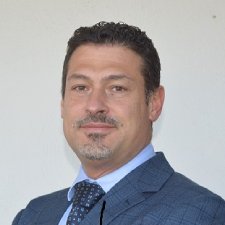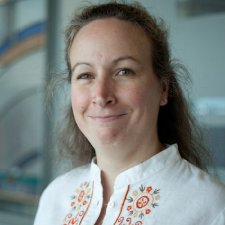Plenary and Keynote Speakers
12th International Conference of Control, Dynamic Systems, and Robotics (CDSR 2025)
We are pleased to announce the plenary and keynote speakers for the 12th International Conference of Control, Dynamic Systems, and Robotics (CDSR 2025) :

Dr. Giuseppe Carbone
University of Calabria, Italy
Plenary Speaker
Giuseppe Carbone has got his PhD degree in Robotics from the University of Cassino, Italy, in 2004 He has been visiting professor at Universidad Carlos III of Madrid, Beihang University, Waseda University, and several other well-reputed International Research Institutions. From 2024 he has joined East China Jiaotong University. From 2020 he is Chair of IFToMM TC on Robotics and Mechatronics. From 2018 he has joined University of Calabria, Italy. From 2018 to 2021 he has been Visiting professor at Sheffield Hallam University, UK where he served as Senior Lecturer and member of the Executive board of Sheffield Robotics from 2015 to 2017. He has been Scientific Director of the International Research Laboratory Intelligent Robotic Systems and Technologies. Among others he is Editor-in-Chief of Robotica Journal (Cambridge Univ. Press), Section EIC of Journal of Bionic Engineering, MDPI Robotics, MDPI Machines, Technical Editor of IEEE/ASME Transactions on Mechatronics. He has been PI or co-PI of more than 20 projects including 7th European Framework and H2020 funds. He has received more than 20 Best Paper awards and more than 10 International Best Patent awards. His research interests cover aspects of Engineering Design, Mechanics of Robots, Mechanics of Manipulation and Grasp, Mechanics of Machinery with over 500 research paper outputs, 20 patents, and 16 Phd completions (8 ongoing). He has been also member of 20 PhD evaluation Commissions in Italy, Spain, Finland, UK, Romania, Mexico, India. He has been invited to deliver Keynote speeches and lectures on his research activity at more than 30 International events. He edited/co-edited four books that have been published by Springer and Elsevier International Publishers. h-index 40 n. citations >6000 (source google scholar). In January 2023 he received an Honoris Causa Doctoral Degree from Technical University of Cluj-Napoca (Romania). In June 2023 he received an Honoris Causa Doctoral Degree from University of Craiova (Romania).
Topic of plenary: Multi-Disciplinarity in Robotics Applications: Needs, Challenges, And Case Studies
![]() Keynote Abstract
Keynote Abstract

Dr. Anouck Girard
The University of Michigan, USA
Plenary Speaker
Professor Anouck Girard received the Ph.D. degree in ocean engineering from the University of California, Berkeley, CA, USA, in 2002. She was with the University of Michigan, Ann Arbor, MI, USA, from 2006 to 2025, where she was a Professor of Robotics and Aerospace Engineering. She was named an Arthur F. Thurnau professor at the University of Michigan in 2024, in recognition of outstanding contributions to undergraduate education.
Starting in June 2025, she will be the Department Chair for Aerospace Engineering at Embry-Riddle Aeronautical University in Daytona Beach, FL, USA.
She has co-authored the book Fundamentals of Aerospace Navigation and Guidance (Cambridge University Press, 2014). Her current research interests include vehicle dynamics and control, as well as decision systems. Dr. Girard was a recipient of the Silver Shaft Teaching Award from the University of Michigan and a Best Student Paper Award from the American Society of Mechanical Engineers. She was a Fulbright Scholar in the Dynamic Systems and Simulation Laboratory at the Technical University of Crete in 2022. She was a member of the National Academy of Engineering Committee on Using Machine Learning in Safety-Critical Applications: Setting a Research Agenda in 2023-24.
Topic of plenary: Safe Autonomy for Aerospace and Vehicle Systems
![]() Plenary Abstract
Plenary Abstract

Dr. Robert Landers
University of Notre Dame, USA
Plenary Speaker
Dr. Robert G. Landers (rlanders@nd.edu) is the Advanced Manufacturing Collegiate Professor in the Department of Aerospace and Mechanical Engineering at the University of Notre Dame. He was previously a Curators’ Distinguished Professor at the Missouri University of Science and Technology and served for three years as a program manager at the National Science Foundation working in the Dynamics, Controls, and System Diagnostics, Foundational Research in Robotics, Cyber Physical Systems, Future Manufacturing, and Leading
Engineering for America’s Prosperity, Health, and Infrastructure (LEAP HI) programs.
He received his Ph.D. degree in Mechanical Engineering from the University of Michigan in 1997. His research interests are in the areas of modeling, analysis, monitoring, and control of manufacturing processes, and in the estimation and control of lithium-ion batteries and hydrogen fuel cells. He received the Society of Manufacturing Engineers’ Outstanding Young Manufacturing Engineer Award in 2004, the ASME
Journal of Manufacturing Science and Engineering’s Best Paper Award in 2014, and the ASME Journal of Dynamic Systems, Measurement, and Control Best Paper Award in 2020. He is a Fellow of ASME and SME, and a senior member of IEEE.
Topic of plenary: Automating Forming Processes![]() Plenary Abstract
Plenary Abstract

Dr. Tony Prescott
University of Sheffield, UK
Plenary Speaker
Tony Prescott is Professor of Cognitive Robotics at the University of Sheffield in the UK. His background mixes psychology (MA Edinburgh), neuroethology and brain theory with robotics and AI (MSc Aberdeen, PhD Sheffield), and his research aims at answering questions about natural intelligence by creating synthetic entities with capacities such as perception, memory, emotion and sense of self. He has co-founded the International Living Machines conference series, and two UK companies developing robotic platforms and software. His popular science book The Psychology of Artificial Intelligence, published in 2024, explores the similarities and differences between human and artificial intelligence. His research has been covered by major news and scientific media including the BBC, CNN, Discovery Channel, Science Magazine, France 24 and New Scientist.
Topic of plenary: Brain-inspired Cognitive Architectures for Robotics
![]() View Abstract
View Abstract

Dr. Cameron Riviere
Carnegie Mellon University, USA
Plenary Speaker
Cameron Riviere is the Director of the Surgical Mechatronics Laboratory in the Robotics Institute at Carnegie Mellon University. He received the Ph.D. in mechanical engineering from Johns Hopkins University in 1995, and joined the Robotics Institute at Carnegie Mellon the same year. He is presently Research Professor of Robotics, Biomedical Engineering, and Mechanical Engineering. He is also an Adjunct Professor in the Department of Rehabilitation Science and Technology at the University of Pittsburgh. He has been guest editor of special issues on medical robotics in the IEEE Transactions on Medical Robotics and Bionics, the Annals of Biomedical Engineering, and the Proceedings of the IEEE. He has received Best Paper awards from the IEEE/ASME Transactions on Mechatronics and from numerous international conferences. His research interests include medical robotics, robot-assisted human micromanipulation, and biomedical applications of human-machine interfaces.
Topic of plenary: Active and Passive Compensation of Physiological Motion for Surgical Accuracy Enhancement
![]() Plenary Abstract
Plenary Abstract

Dr. Guohao Li
Eigent.AI, UK
Keynote Speaker
Guohao Li is a founder and CEO of Eigent.AI. He is an artificial intelligence researcher and an open-source contributor working on building intelligent agents that can perceive, learn, communicate, reason, and act. He is the core lead of the open source projects CAMEL-AI.org and DeepGCNs.org. Guohao Li was a postdoctoral researcher at University of Oxford with Prof. Philip Torr. He obtained his PhD degree in Computer Science at King Abdullah University of Science and Technology (KAUST) advised by Prof. Bernard Ghanem. During his Ph.D. studies, he was fortunate to work at Intel ISL with Dr. Vladlen Koltun and Dr. Matthias Müller as a research intern. He visited ETHz CVL as a visiting researcher. He also worked at Kumo AI and PyG.org with Prof. Jure Leskovec and Dr. Matthias Fey as a PhD intern. His primary research interests include Autonomous Agents, Graph Machine Learning, Computer Vision, and Embodied AI. He has published related papers in top-tier conferences and journals such as ICCV, CVPR, ICML, NeurIPS, RSS, 3DV, and TPAMI.
Topic of Keynote: Finding the Scaling Law of Agents
![]() Keynote Abstract
Keynote Abstract
Registration fee includes the following:
- Publication of 1 accepted paper in the proceedings. Publication of each additional paper requires a £250 Pound registration
- Buffet lunch for each day of the conference
- 2 coffee breaks for each day of the conference
- 1 banquet dinner OR cruise tour
Important information for accompanying person(s): Please be informed that the accompanying person can NOT be a co-author.
Co-authors, regardless if 1 author is attending, must pay the full registration fee.
The accompany person fee is only for spouses and/or children. Please contact us if you are unsure.
Virtual registration fee includes the following:
- Publication of 1 accepted paper in the proceedings. Publication of each additional paper requires a £150 Pound registration
- Access to all the sessions of the conference